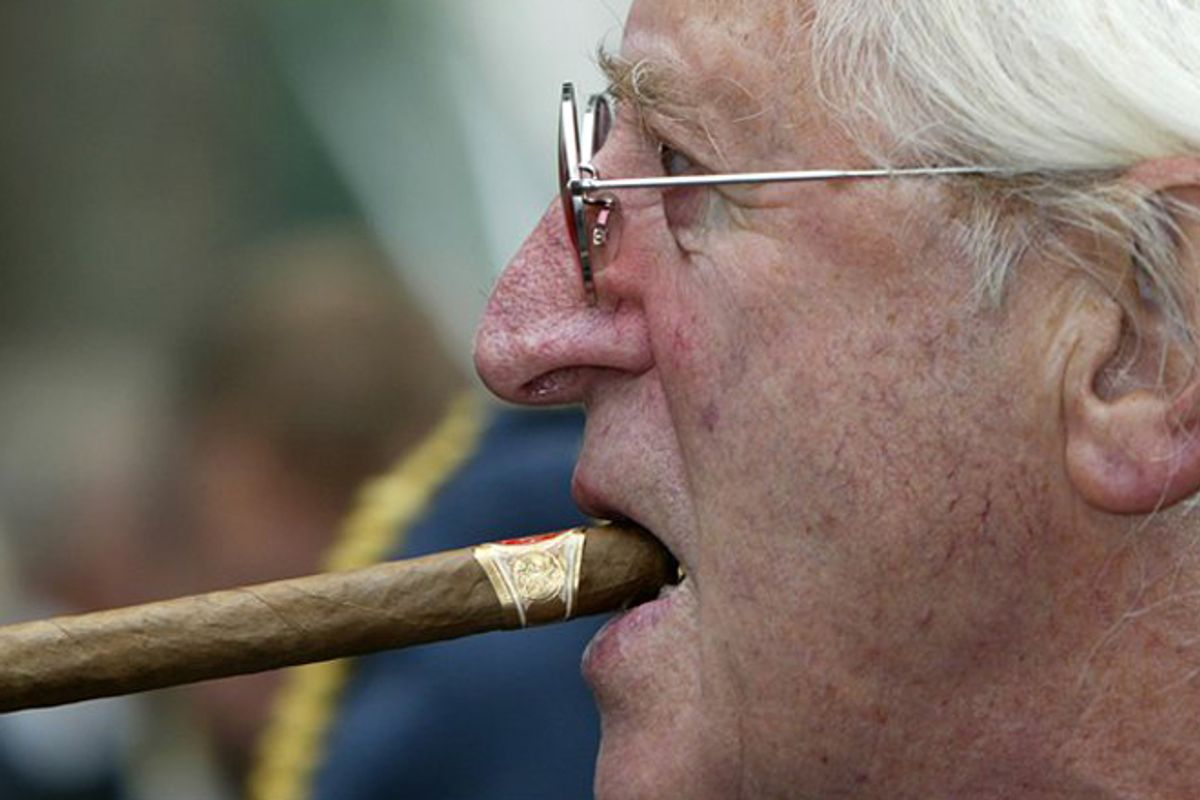In the four weeks since the British network ITV aired its damning documentary "Exposure: The Other Side of Jimmy Savile," the late entertainer's decades-long history of alleged sexual abuse of both girls and boys has utterly rewritten the once beloved entertainer's legacy — and become a very present-day scandal for the BBC.
An ever-increasing array of potential victims now mounts – U.K. police are now following 400 lines of inquiry involving over 200 children and teenagers — sometimes on BBC premises. And as the investigation grows, there are disturbing questions of how much Savile's longtime media home knew about his behavior, how little the venerable network may have done to protect the kids Savile preyed upon, and, significantly, how insensitive about his possible crimes it has been right up to the present day.
On Tuesday, news show "Panorama" revealed that in email, BBC "Newsnight" reporter Liz MacKean alleged that her editor Peter Rippon spiked a 2011 feature on Savile. She wrote, "Having commissioned the story, Peter Rippon keeps saying he's lukewarm about it and is trying to kill it by making impossible editorial demands." And here are the real kickers: She wrote, "When we rebut his points, he resorts to saying, Well, it was 40 years ago … the girls were teenagers, not too young … They weren't the worst kind of sexual offences, etc." And in an email to producer Meirion Jones, Rippon wrote, "Our sources so far are just the women and a second-hand briefing." Oh, well, if it's just women! Jones told "Panorama," "We weren't asked to find more evidence … we were told to stop."
After Savile died last October at 84, he was the subject of BBC tributes despite, as the U.K. Guardian reports, "Newsnight's" pending investigation. BBC director general George Entwistle has come under scathing criticism for his network's mishandling of the Savile story, and on Monday, Rippon stepped down and the BBC issued a whopper of a correction about its handling of the "Newsnight" piece. The BBC has also announced it is launching its own independent investigation into how the Savile story was bungled.
There is so much about the Savile case that is sickeningly, depressingly familiar to anyone who's followed the Catholic Church's sex abuse scandals, the Boy Scouts' alleged coverups and the Jerry Sandusky story. It's one that involves not just an individual who put himself in the path of young people and repeatedly preyed on their trust and vulnerability, but one in which he appears to have been institutionally protected, again and again and again. In an editorial this week, the Guardian scathingly chastised an organization in which "The principal culprit was protected by countless blind eyes, and by an onscreen culture which tittered indulgently at lechery, as if it were only natural for red-blooded males."
The tarnishing of the BBC's reputation is grave. Foreign correspondent John Simpson calls it "the worst crisis that I can remember in my nearly 50 years at the BBC." Yet along with the appalling revelations of an apparently blatant disregard for the welfare of young victims that went on for a stunning four decades, there's the very important news that this callous attitude seems to have been very much alive and well in the present day. MacKean's allegation that Peter Rippon was dismissive of the Savile story because, hey, it's all in the past and who gives a damn about teenage girls anyway? says it all. Your abuse doesn't matter. It was too long ago, and maybe you weren't young enough to make for a really shocking headline. It wasn't "the worst" so it doesn't merit attention. This is what the BBC seems to have thought of accusations of sexual abuse — in 2011. I wonder how many of the over 200 possible victims of Jimmy Savile think what happened to them is irrelevant because it happened a long time ago. But if there's one thing the Beeb got right in all of this, it's George Entwistle's statement to a parliamentary committee this week that "I do believe the culture has changed since the '70s and '80s, but I'm not convinced it has changed as much as it should have."

Shares